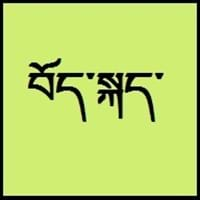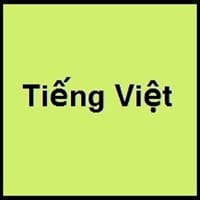Countries
China, Nepal
Vietnam
National Language
Nepal, Tibet
Vietnam
Second Language
Not spoken in any of the countries
Australia, East Asia, North America, Southeast Asia, Western Europe
Speaking Continents
Asia
Asia
Minority Language
China, India, Nepal
Czech Republic
Regulated By
Committee for the Standardisation of the Tibetan Language
Not Available
Interesting Facts
- Tibetan dialects vary alot, so it's difficult for tibetans to understand each other if they are not from same area.
- Tibetan is tonal with six tones in all: short low, long low, high falling, low falling, short high, long high.
- The vocabulary of Vietnamese language is influenced by Chinese Language.
- The only language in East Asia that uses the Latin alphabet is Vietnamese.
Similar To
Not Available
Chinese Language
Derived From
Not Available
Chinese Language
Alphabets in
Tibetan-Alphabets.jpg#200
Vietnamese-Alphabets.jpg#200
Scripts
Tibetan alphabet, Tibetan Braille
Latin
Writing Direction
Left-To-Right, Horizontal
Not Available
Hello
བཀྲ་ཤིས་བདེ་ལེགས། (tashi delek)
Xin chào
Thank You
ཐུགས་རྗེ་ཆེ་། (tujay-chay)
Cam on
How Are You?
ཁྱེད་རང་སྐུ་གཇུགས་བདེ་པོ་ཡིན་པས།
(kayrang kusu debo yimbay?)
Bạn khỏe không?
Good Night
གཟིམ་ལཇག་གནང་དགོས་། (sim-jah nahng-go)
Chúc ngủ ngon
Good Evening
དགོང་དྲོ་བདེ་ལེགས།
Chào buổi tối
Good Afternoon
ཉིན་གུང་བདེ་ལེགས།
Chào buổi trưa
Good Morning
སྔ་དྲོ་བདེ་ལེགས། (nga-to delek)
Chào buổi sáng
Please
thu-je zig / ku-chee.
xin vui lòng
Sorry
ཀོང་དགས་། (gawn-da)
Xin lỗi
Bye
ག་ལེར་ཕེབས་། (kha-leh phe)
Tạm biệt
I Love You
ང་ཁྱེད་རང་ལ་དགའ་པོ་ཡོད་ (nga kayrâng-la gawpo yö)
tôi yêu bạn
Excuse Me
དགོངས་དག བཟོད་དུ་གསོལ། ཐུགས་རྗེ་གཟིགས།
Xin loi
Dialect 1
Central Tibetan
Northern Vietnamese
Where They Speak
China, India, Nepal
Dong Bac, Haiphong, Hanoi, Red River Delta, Tay Bac
How Many People Speak
Not Available
Dialect 2
Khams Tibetan
North-central Vietnamese
Where They Speak
Bhutan, China
Ha Tinh, Nghe An, Thanh Hoa
How Many People Speak
Not Available
Dialect 3
Amdo Tibetan
Mid-Central Vietnamese
Where They Speak
China
Hue, Quang Tri, Thua Thien
How Many People Speak
Not Available
Speaking Population
Not Available
Second Language Speakers
Not Available
Native Name
བོད་སྐད་ (pö-gay)
tiếng việt (㗂越)
Alternative Names
Bhotia, Dbus, Dbusgtsang, Phoke, Tibetan, U, Wei, Weizang, Zang
Annamese, Ching, Gin, Jing, Kinh, Viet
French Name
tibétain
vietnamien
German Name
Tibetisch
Vietnamesisch
Pronunciation
Not Available
[tĭəŋ vìəˀt] (Northern)
[tǐəŋ jìək] (Southern)
Ethnicity
tibetan people
Vietnamese (Kinh) people
Language Family
Sino-Tibetan Family
Austroasiatic Family
Subgroup
Tibeto-Burman
Not Available
Branch
Not Available
Not Available
Early Forms
Old Tibetan, Classical Tibetan
Pre-Vietnamese, Proto-Vietnamese, Archaic Vietnamese, Ancient Vietnamese, Middle Vietnamese, Modern Vietnamese
Standard Forms
Standard Tibetan
Standard Vietnamese
Language Position
Not Available
Signed Forms
Tibetan Sign Language
Vietnamese sign languages
Scope
Not Available
Individual
ISO 639 6
Not Available
Not Available
Glottocode
tibe1272
viet1252
Linguasphere
No data Available
46-EBA
Language Type
Not Available
Living
Language Linguistic Typology
Not Available
Subject-Verb-Object
Language Morphological Typology
Not Available
Analytic, Isolating
Tibetan and Vietnamese Greetings
People around the world use different languages to interact with each other. Even if we cannot communicate fluently in any language, it will always be beneficial to know about some of the common greetings or phrases from that language. This is where Tibetan and Vietnamese greetings helps you to understand basic phrases in Tibetan and Vietnamese language. Tibetan word for "Hello" is བཀྲ་ཤིས་བདེ་ལེགས། (tashi delek) or Vietnamese word for "Thank You" is Cam on. Find more of such common Tibetan Greetings and Vietnamese Greetings. These greetings will help you to be more confident when conversing with natives that speak these languages.
Tibetan vs Vietnamese Difficulty
The Tibetan vs Vietnamese difficulty level basically depends on the number of Tibetan Alphabets and Vietnamese Alphabets. Also the number of vowels and consonants in the language plays an important role in deciding the difficulty level of that language. The important points to be considered when we compare Tibetan and Vietnamese are the origin, speaking countries, language family, different greetings, speaking population of these languages. Want to know in Tibetan and Vietnamese, which language is harder to learn? Time required to learn Tibetan is 24 weeks while to learn Vietnamese time required is 44 weeks.





